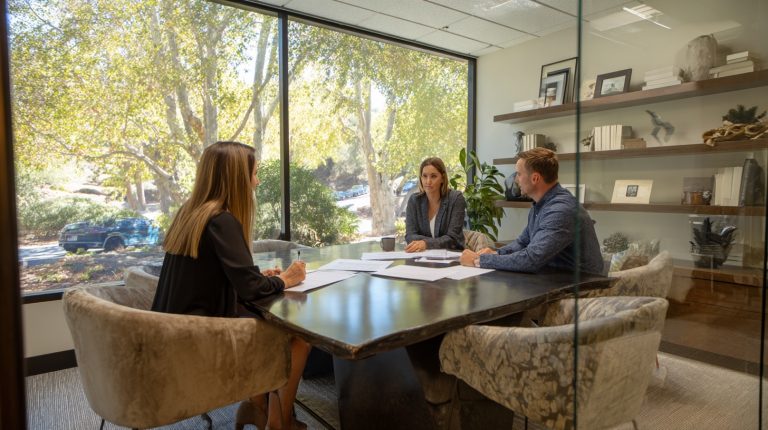
5 Reasons Mediation Is Better Than Litigation in Divorce
Divorce is hard enough without making it harder than it needs to be.
If you’re facing divorce in Southern California, you’re probably assuming you’ll need to hire lawyers and head to court. That’s what most people think of as “getting divorced.” But there’s another option that many couples don’t even know exists until it’s too late to take advantage of it.
At ClearPath Divorce Advisors, we work with families who choose mediation over litigation, and we’ve seen the difference it makes. Not just in terms of cost or time, but in how people feel about themselves and their decisions when it’s all over.
Here’s why mediation often works better than going to court.
- You Keep Control of Your Own Life
In litigation, you’re essentially asking a judge – someone who doesn’t know you, your family, or your circumstances – to make major decisions about your future. That judge has maybe 20 minutes to understand your situation before ruling on things like custody, support, and property division.
In mediation, you and your spouse make those decisions yourselves. You know your family better than anyone else. You understand what will and won’t work in your specific situation. Why hand that power over to a stranger?
- The Financial Reality Is Dramatically Different
Litigated divorces are expensive, and the costs can spiral quickly. Between attorney retainers (often $5,000-$15,000 each), hourly fees that can run $450 per hour per spouse’s attorney, court costs, filing fees, and the delays that stretch everything out, couples routinely spend $50,000 or more.
Our specialized mediation process costs $799 total. That’s less than most attorneys charge for their first consultation.
Even if you ultimately need legal advice or decide to pursue litigation later, starting with mediation can save you thousands of dollars and help you understand what you’re really dealing with.
- Your Personal Business Stays Personal
Everything that happens in court becomes part of the public record. That means your financial information, personal disputes, and family details can be accessed by anyone who wants to look them up.
Mediation is completely private. No court records, no public filings, no risk that your neighbors or colleagues will stumble across details about your divorce online.
For families who value their privacy – especially those with children or public-facing careers – this alone makes mediation worth considering.
- Things Actually Move Forward
Court schedules are packed, and litigated divorces often take 18-24 months or longer. You’re at the mercy of court availability, attorney schedules, and procedural delays that have nothing to do with your actual case.
Mediation moves at whatever pace works for you. Some couples resolve their issues in a few sessions over a couple of months. Others take longer, but they’re still controlling the timeline rather than waiting for the legal system to get around to them.
- You Don’t Burn Down Relationships You Might Need Later
Litigation is inherently adversarial. The whole system is designed around the idea that one person wins and the other loses. That approach can destroy any possibility of civil communication afterward.
If you have children together, you’ll need to co-parent, and even co-grandparent for decades to come. Even if you don’t, you might prefer to end your marriage without creating permanent animosity.
Mediation focuses on problem-solving rather than blame. It won’t save every relationship, but it can prevent unnecessary damage.
When Mediation Makes Sense (And When It Doesn’t)
Mediation tends to work well when both people are willing to engage honestly, even if they’re angry or hurt. You don’t have to be friendly or agree on everything. You just need to be willing to have difficult conversations and work toward solutions.
It’s not appropriate when there’s been domestic violence, when one person is hiding assets or being dishonest, or when someone simply refuses to participate in good faith.
How We Do Mediation Differently at ClearPath Divorce Advisors
Rather than pushing couples into full mediation right away, we offer what we call a “litigation pause” – a chance to step back and see if mediation might work before the adversarial process takes over.
The process includes individual sessions with each spouse (1 hour each) and one joint session (3 hours) for a total cost of $799. No retainers, no ongoing fees, no obligation to continue if it doesn’t feel right.
This gives couples a chance to explore their options without committing to a long process they might not be ready for.
The Bottom Line
Mediation isn’t right for every couple, but it’s worth considering for most. Even if you ultimately decide litigation is necessary, understanding your alternatives helps you make that choice deliberately rather than by default.
This article is part of our educational series from ClearPath Divorce Advisors, helping Southern California families explore alternatives to traditional divorce litigation.
